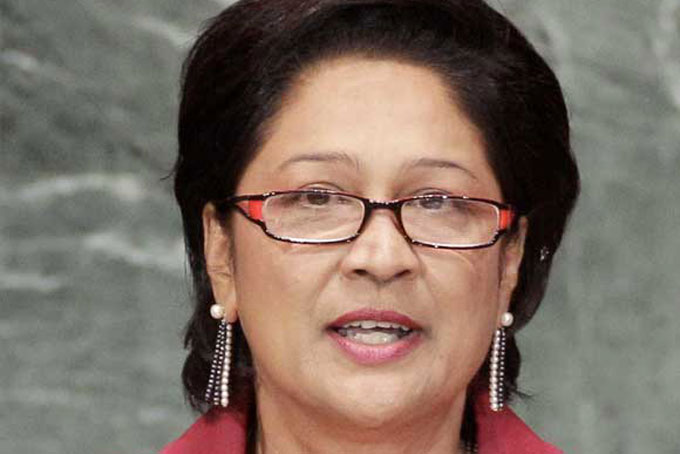
Usually at this time of the year, international legislators and high flyers at umbrella organizations such as the European Union, its Parliament and even the Caribbean Community Secretariat take an extended break from the daily grind of trade negotiations and global conferences to refocus on the main issues in the fall. So it is usually a struggle to get key players on various issues to pay attention to causes such as efforts by the Caribbean trade bloc to win reparations from European nations for the part they played in enslaving millions of Africans during the transatlantic slave trade.
But in the past week, the regional head of the Caribbean Reparations Commission and Prime Minister Kamla Persad-Bissessar of Trinidad worked to ensure that the issue remained on the front burner. Both capitalized on annual slavery emancipation celebrations across the region to keep the reparations battle in the headlines.
Sir Hilary Beckles, vice chancellor of the University of the West Indies, restated that the British Parliament, which had opted to compensate slave owners rather than those they had enslaved for centuries, owes people of the region billions in compensation for the effects and horrors of the slave trade.
“What is being asked for is not a handout, but for the British Parliament to fix the mess they created and help in the healing and rehabilitation of the Caribbean,” he told an emancipation conference in Jamaica.
Facing general elections in five weeks, trailing in the polls and anxious to court the country’s Afro community, Persad-Bissessar referred to “the unthinkable cruelty” that Blacks had endured during the slave trade and the lasting effects of this genocide on people of African descent.
“I take this opportunity to reiterate my government’s commitment to the cause of reparations for slavery and native genocide, upon which Trinidad and Tobago, along with our Caricom neighbors, has embarked. I therefore assure our community groups and national organizations of my continued support as you advance the concerns of your members, including those persons lobbying on behalf of our citizens of African descent,” she said at national emancipation observances.
As preparatory efforts continue across the region to one day soon confront Britain, Spain, the Netherlands and others for compensation, the two leaders might have been unaware of how important their recent statements might be as the recent regional leaders summit in Barbados had precious little time to deliberate reparations.
Beckles, who last year had the opportunity to address both houses of the British Parliament, wasted little time in highlighting the negative fallout of the slave trade and the resultant European colonization on Jamaica and Barbados, pointing to higher-than-usual rates of chronic diseases Caribbean people are living with more than a century after.
He argued that up to 1.2 million Africans were brought to Jamaica during the slave trade. Only approximately 300,000 survived at emancipation in the 1830s. “Jamaica, Britain’s largest slave colony, was left with 80 percent Black functional literacy at independence in 1962 and has struggled since with development and poverty alleviation”.
Barbados, on the other hand, “Britain’s first slave society, is now host to the world’s most virulent diabetes and hypertension epidemic and is owed an education and health initiative by Britain,” the Jamaican Observer newspaper quoted him as saying this week.
As he told British legislators, people in the region should be upset that their fore parents were not paid a single cent for cruel plantation work, unlike the people who brutalized them.
(Special to the NNPA from the New York Amsterdam News)